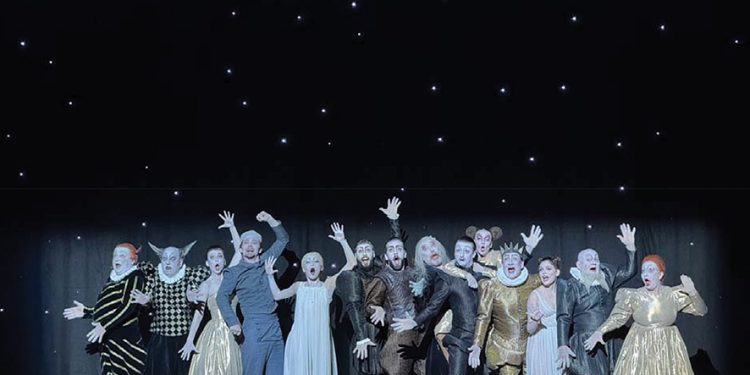As the grand opening of the 2024 Tbilisi International Festival of Theater, Robert Wilson’s masterful production of The Tempest brought not just a play, but a transcendent experience to the Rustaveli Theater. A visual architect of modern theater, Wilson graced the performance with his presence, magnifying its weight for Georgian audiences. The legendary director’s arrival in Tbilisi became a historic moment, where art and magic fused under the spell of Shakespeare’s enchanted island.
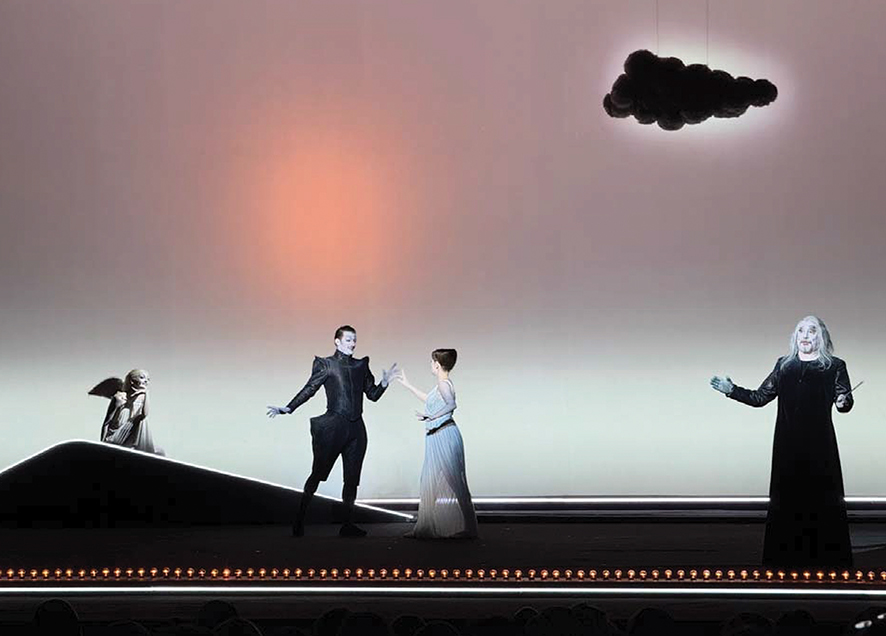
A Tale of Forgiveness and Shadows: Wilson’s Vision of The Tempest
At its core, The Tempest is often reduced to a fantastical tale, yet Wilson daringly engages with Shakespeare’s simple yet profound theme of forgiveness. While many contemporary directors seek to complicate the moral simplicity, Wilson leans into its fairytale elements, allowing the dreamscape to flourish. His production masterfully balances the magical and grotesque—two worlds he often excels in merging—allowing the audience to not only witness a moral fable, but to experience a visceral, emotional conflict in which human vulnerability and rage manifest in every contorted movement on stage.
The tale of vengeance turning to grace becomes a mirror of human contradiction in Wilson’s hands. The characters aren’t merely pieces on Shakespeare’s chessboard but tormented souls, each carrying deep psychological scars. With an emotionally complex Prospero—played with a mix of delicate grace and wearied authority by Veselin Mezekliev—Wilson brings the story closer to the contemporary world. In the bleakness of revenge, he finds the innocence of hope. As Tom Waits’ haunting “Innocent When You Dream” underscores key moments, Wilson invites the audience into a world suspended between justice and mercy, dream and nightmare.
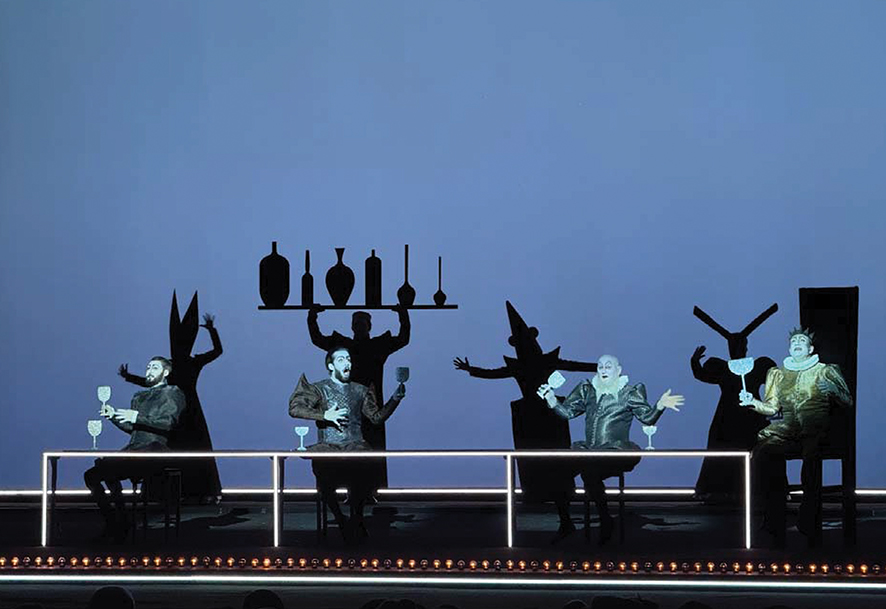
Hell is Empty, But the Demons Laugh: Absurdity Meets Redemption in Wilson’s Universe
Wilson’s approach to The Tempest is uniquely marked by its treatment of absurdity. His world is teeming with demons—not grotesque fiends, but pitiable, childlike figures whose rage is as misguided as it is dangerous. Caliban’s desperation, Antonio’s scheming—they’re not monsters of pure malevolence but lost souls trapped in their own psychological shipwrecks. This portrayal highlights a key aspect of Wilson’s craft: humanity, in all its grotesqueness, is still redeemable. These “devils” are figures we recognize—jealous, desperate, and full of human flaws—but it is precisely in these flaws that Wilson finds the possibility of salvation.
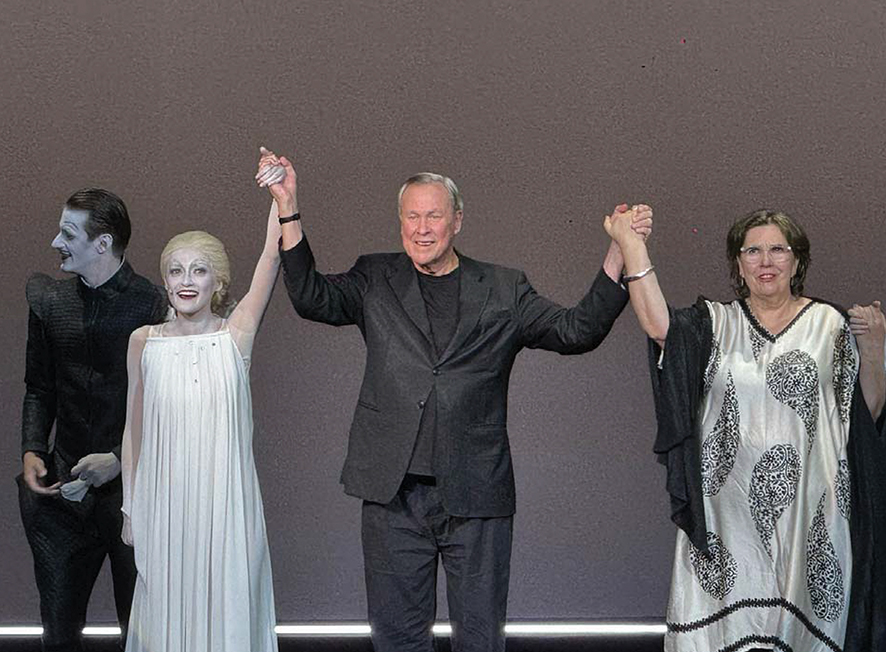
In the post-pandemic, post-aggression world of the 2020s, these stranded characters become metaphors for a global audience still grappling with its own crises. Their emotional shipwreck is ours. Their quest to find forgiveness and redemption speaks directly to a society fumbling for a return to some sense of “normalcy.” But Wilson’s message is not just about returning; it’s about embracing the journey of brokenness and difference that defines us. His Prospero is not just the orchestrator of magic, but the wise figure who guides us through chaos toward catharsis, showing that salvation is less about control and more about acceptance.
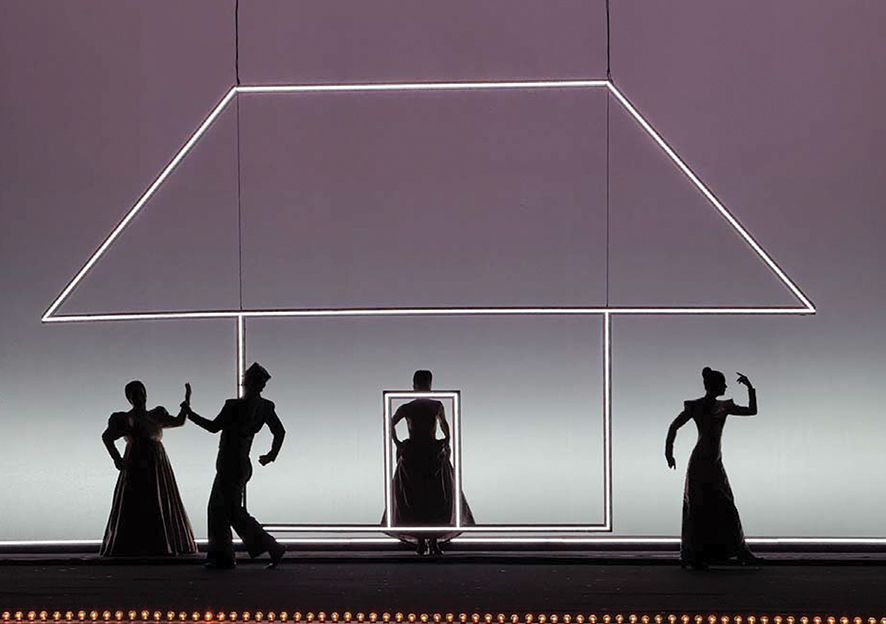
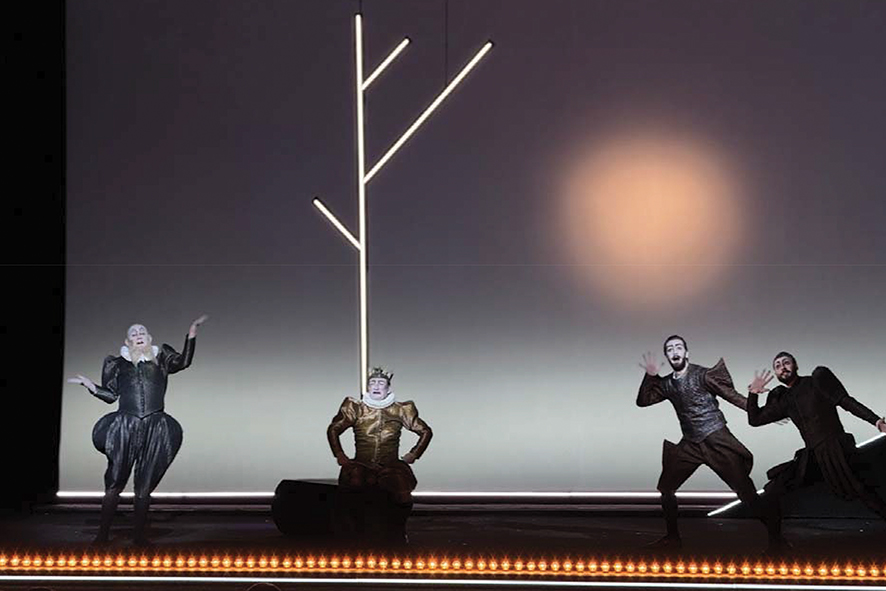
The Dance of Light and Darkness: Performance, Sound, and Movement in Wilson’s Tempest
One cannot discuss Robert Wilson without acknowledging his mastery of visual and sensory storytelling. His stage design, stark yet rich in its simplicity, allows the actors’ physicality to speak louder than words. The light becomes a character in itself, shaping and reshaping the emotional texture of the play. Marcello Lumaca and Christian-Simon Petru’s lighting design, alongside Dario Felli’s evocative soundscape, weave a world that feels perpetually suspended between reality and fantasy. The ethereal island where The Tempest unfolds is bathed in shifting tones—warm glows of hope juxtaposed against cold, harsh shadows of despair.
Wilson’s minimalistic staging is no mere backdrop, but a canvas that pushes the audience to focus on the actors’ movements, each one pregnant with meaning. Prospero’s deliberate, almost mechanical gestures reflect the weight of power and the emotional toll of relinquishing it. Every actor, from Caliban to Miranda, becomes a dancer in a surreal ballet of rage, guilt, and redemption. The choreography of emotions is a hallmark of Wilson’s style—where each movement, like a note in a symphony, plays its part in the larger theme of transformation.
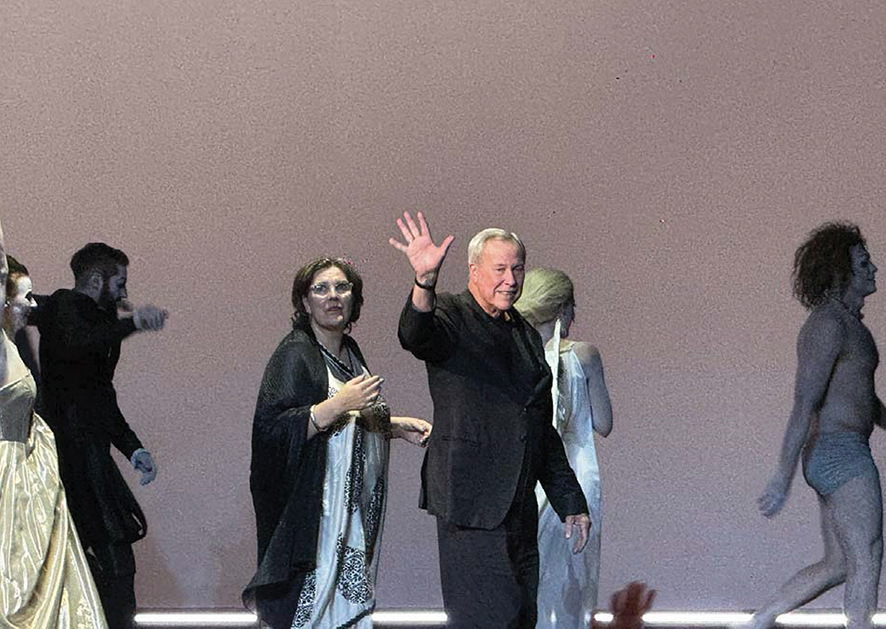
And then there’s the music. Tom Waits’ eerie lullaby “Innocent When You Dream” haunts the production, a bittersweet melody that pulls the audience into the dreamscape Wilson has constructed. Its whimsical innocence contrasts sharply with the twisted fates of the characters, underscoring the fragility of forgiveness in a world that seems incapable of escaping its own darkness. Yet, in this contrast, Wilson finds profound beauty: innocence exists even amidst the grotesque, and it is this very juxtaposition that gives The Tempest its emotional weight.
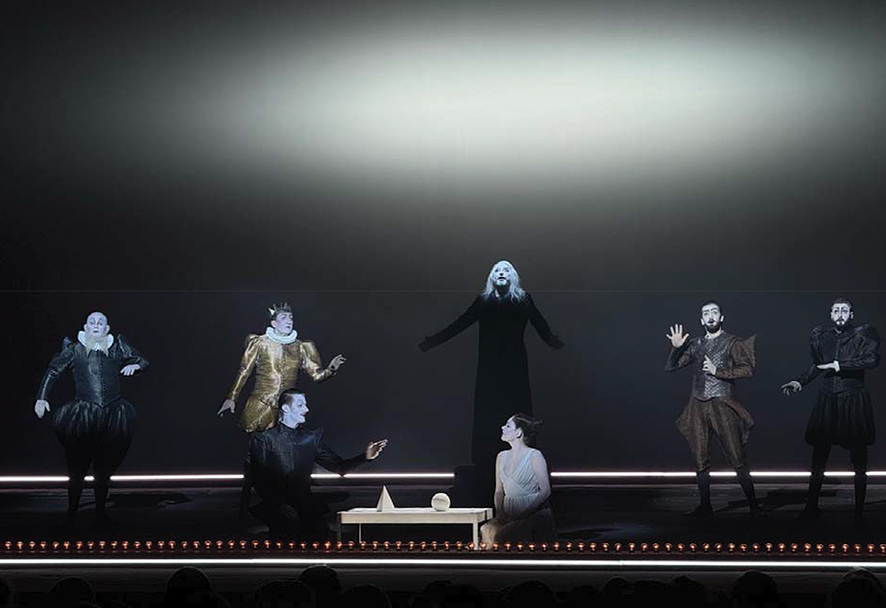
The Quiet Power of Letting Go: Wilson’s Farewell Gesture
In Wilson’s hands, the climax of The Tempest is not a thunderous grand finale but a quiet, powerful act of release. As Prospero relinquishes his magical powers, Wilson himself seems to be bidding farewell—not just to the play, but to the world of control he’s so meticulously constructed. The act of letting go, of stepping away from the world one has shaped, becomes the ultimate expression of forgiveness. For Prospero, it’s a release from vengeance; for Wilson, it’s a statement about the artist’s role in creating and then abandoning their creation.
For the Tbilisi audience, this production was not just theater—it was an encounter with a modern magician at the height of his powers. Wilson’s presence added an undeniable weight to the evening, reminding the world of his unique ability to transform the stage into a space where dreams, nightmares, and human emotion collide. His interpretation of The Tempest will undoubtedly linger in the hearts and minds of those who witnessed it long after the curtain falls. A testament to the timelessness of Shakespeare and the boundless creativity of Wilson, this production speaks to the core of what it means to be human—flawed, hopeful, and always on the verge of redemption.
By Ivan Nechaev

